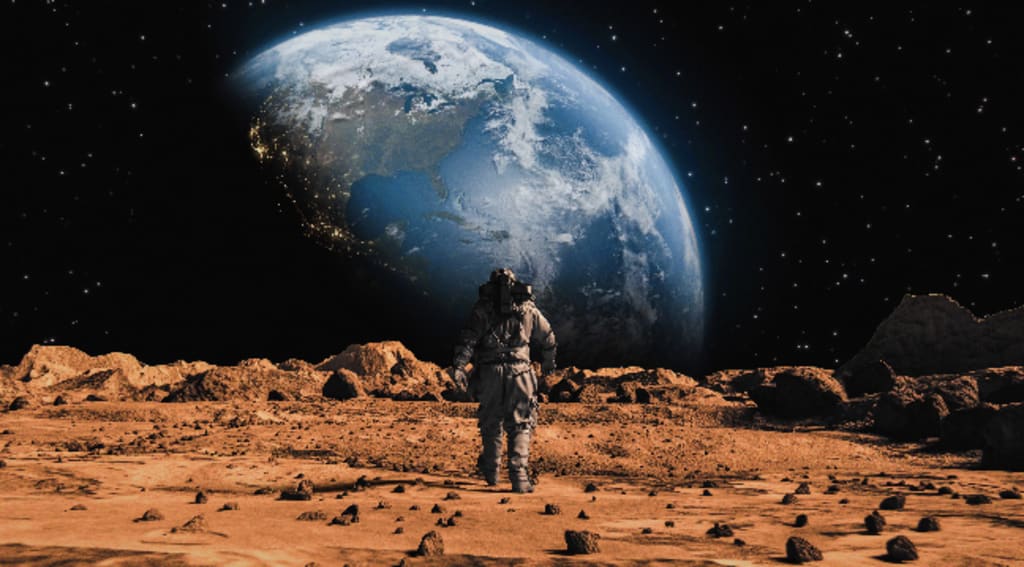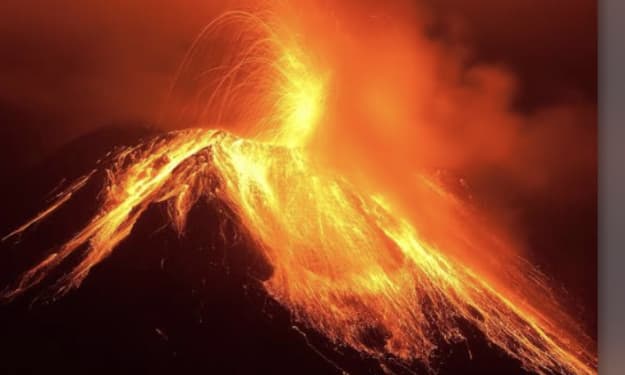WATER ON MARS?, BUT CAN WE DRINK IT
Could this be the proof we need that we can live on mars ?

This planet looks lifeless lifeless
brick red and very very dry like a
desert but only until you reach one of
the poles of the red planet that's where
you come across a seemingly endless ice
cap
so if you've been imagining Mars as an
extremely dry place you might need to
change your opinion scientists think
there could have been a lot of water on
Mars in the past what makes them think
so they found loads of ancient river
valley networks and Lake beds on the
surface of the red planet Plus on Mars
there are minerals and rocks that could
have only formed in liquid water Mars
might even have experienced terrible
floods 3.5 billion years ago
these days there's still some water on
the red planet it's true that Mars
atmosphere is too thin for this water to
stay in its liquid form on the surface
of the planet but under the surface it's
a different matter
you can find water under the surface of
the planet in its polar regions the only
place where this water is visible is at
the north polar ice cap also sometimes
salty water flows down crater walls and
hillsides and there are tiny quantities
of water in the planet's atmosphere but
it only exists as vapor
anyway now that we know for sure there
is liquid water on Mars could we
probably use this water during a human
operated mission to the red planet this
way the spaceship coming from Earth
wouldn't have to bring its own water it
would make its cargo way way lighter
which in turn would decrease the cost of
the mission the spaceship would just
need to take enough water to get to the
red planet and bring along the equipment
astronauts will need to filter Martian
water to make it drinkable
but it's not all sunshine and rainbows
the main problem is that the water found
on Mars is salty it might even be as
salty as the oceans on our own Planet
but these salts aren't what you can find
on Earth if a person consumed a certain
amount of them they would be highly
toxic to the human body
on our planet these salts are formed as
byproducts of Rocket Fuel as well as in
road flares and fireworks naturally they
only occur in very dry areas if there
are no particular bacteria to break them
down these substances accumulate year
after year and their concentration in
water is constantly increasing
but in theory it's possible to purify
even such water the process of
filtration could help the astronauts get
rid of 90 percent of harmful substances
then they could use a UV disinfection
unit this would also help to get rid of
any foreign microbes if there are any
that might be hiding in the water
this stage would not only protect the
astronauts but also prevent them from
bringing any dormant Martian microbes
back to Earth
in other words future travelers to Mars
shouldn't have too many problems with
drinking water on the red planet but
only if they bring the right
purification equipment that can deal
with any water quality because however
bad running out of water in the middle
of a desert is experiencing it on
another planet sounds much more
terrifying
now I've got another question if there
is water on Mars might there be other
worlds in our solar system where we can
find water sure let's visit some of them
we'll start with Europa one of the
largest moons of Jupiter astronomers
consider Europa one of the most
promising places in the solar system to
search for new life forms all because
this Moon has a huge saltwater ocean
with a depth of 40 to 100 miles
yes it is hidden under a layer of ice
that is estimated to be from 10 to 20
miles thick but it is still potentially
habitable astronomers claim that plumes
of water erupt from cracks in the ice
shell and release the contents of the
moon's ocean into space
there's also some evidence that the
ocean might have warm water radiating
from the moon's equator which also means
there could be not just life but complex
life on Europa well I guess we'll find
all about it in 2030 when NASA's Europa
Clipper will reach the satellite and
conduct its own investigation
and we're moving on to Enceladus
Saturn's moon people have known about
this tiny sleepy world since 1789. the
diameter of the Moon is a mere 310 miles
but despite its small size it's one of
the most intriguing places in our solar
system because it too is likely to host
a warm and salty liquid ocean
watery eruptions happen on Enceladus
rather regularly the Moon spews from its
ice geysers more than one thousand tons
of water every hour this water is mixed
with organic molecules salt and other
substances
astronomers think that the ocean might
be warm thanks to the tidal influence of
Saturn the planet's tug may cause
hydrothermal activity warming the oceans
there are also places in the solar
system that might have water on their
surface but its presence hasn't been
confirmed yet for example Ganymede
another moon of Jupiter
it's the largest moon in the solar
system it's even bigger than Mercury
astronomers have long believed there is
an ocean beneath the 100 mile thick ice
crust covering the Moon
and in 2015 ganymede's Aurora activity
also hinted that this ocean could be
warm and salty unlike on Europa ice
geyser activity on Ganymede hasn't been
spotted yet the reason might be a much
greater distance between Jupiter and
Ganymede than that between the gas giant
and Europa
also there are the maybes those are
worlds where there seems to be water but
we don't know to what extent it is
liquid
one of such places is Callisto which
have you guessed it is another of
Jupiter's moons
it's pretty far from its parent planet
and also doesn't get as much radiation
as other moons plus it has a magnetic
field which definitely adds some
protection
astronomers claim there is water in this
far away world but the moon's lack of
geological activity might mean that it
can't have an ocean without some kind of
space antifreeze in other words all that
water on Jupiter satellite can be a huge
and I mean huge chunk of ice
now let's visit another space body but
this time it's not a moon but a dwarf
planet look this is series even though
people have known about it since 1801
its small size made it difficult to
study until not so long ago this space
body was considered to be a rocky world
but after the dawn spacecraft arrived at
Series in 2015 and examined the dwarf
planet a new Theory appeared
series might be less of a Rocky ball and
more of a watery Planet covered with an
icy mantle and a slushy ocean moving
beneath
if it's true Ceres could become the
nearest to Earth world with an ocean
Titan is Saturn's largest moon it has
some of the most abundant pools of
liquid in the solar system its surface
is a slurry of water ice and ice made of
lots of different compounds for example
hydrocarbons the satellite also has
dense clouds that regularly burst with
rain
and if you visited this place you'd see
rivers lakes and an ocean made up of
methane and ethane hiding under the icy
crust
now let's talk about Poor Pluto which
has changed its status a couple of times
when NASA's New Horizons flew by the
dwarf planet in 2015 it discovered a
hint of something totally unexpected an
ocean
Pluto is an icy world but there are two
things that make scientists think that
Pluto might have once hosted an ocean
first a theory that Pluto and its five
moons could have been formed out of the
same materials after a powerful
Collision
and second the tidal forces between
Pluto and its largest moon chera even
better this leaves open the possibility
that the ocean is still around
we just need more time to examine the
dwarf planet.





Comments
There are no comments for this story
Be the first to respond and start the conversation.